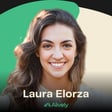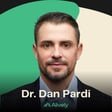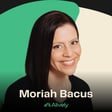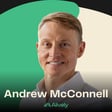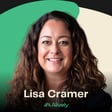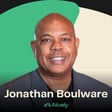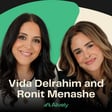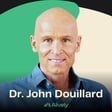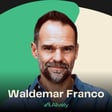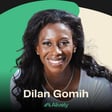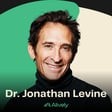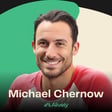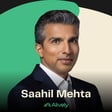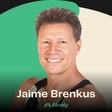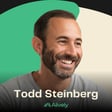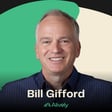
Prioritize Sleep For Improved Mental Health with Dr Tracey Marks - E8
Poor sleep quality can have a profound impact on your mental health, leading to increased stress, anxiety, and even depression. We all struggle to concentrate, regulate our emotions, and maintain healthy relationships, all while feeling trapped in a cycle of exhaustion and mental distress. However, prioritizing sleep and understanding its crucial role in mental well-being can be the first step towards reclaiming your emotional equilibrium. In this episode, we delve into the intricate relationship between mental health and healthspan, with an emphasis on sleep. We’ll explore how improving your sleep habits can help you build resilience, enhance your mood, and foster a greater sense of overall well-being.
Dr. Tracey Marks has made significant contributions to the field of mental health through her work as a psychiatrist and her innovative approach to education and advocacy. With a wealth of experience in both general and forensic psychiatry, Dr. Marks has dedicated her career to bridging the knowledge gap and reducing the stigma surrounding mental health issues. Her YouTube channel has become a resource for those seeking to better understand and manage their mental well-being, empowering people to take control of their mental health journey. She continues to inspire and educate, helping countless individuals navigate the complexities of mental health in today's challenging world.
“Take some of the stigma out of mental health and even the discussion of it, and make it ordinary conversation for people.” - Dr Tracey Marks
In this episode you will learn:
- Dr Marks' journey into mental health advocacy and her efforts to educate and empower people to take control of their mental health.
- How Dr Marks uses a bedtime routine including blue light blocking glasses, audiobooks, and sleep aids to prepare for restful sleep.
- The role of sensory cues, such as aromatherapy and weighted blankets, in creating a relaxing environment for better sleep.
- The importance of social connections and finding balance between work and social life for overall well-being.
- The interconnectedness of physical and mental health, with strategies like regular exercise, clean eating, and self-compassion for improving both.
- Practical tips for managing stress and promoting mental well-being, such as guided meditation, breathing exercises, and making small, cumulative changes over time.
Resources
- Get Dr Marks' free self-compassion companion guide: https://drtraceymarks.ck.page/b7dea20257
- Watch Dr Marks' YouTube channel for more mental health education: https://www.youtube.com/@DrTraceyMarks/
- Connect with Dr Marks on Instagram: https://www.instagram.com/drtraceymarks
- Shop all the products Dr Marks mentions in the episode: https://alively.com/products/drtraceymarks
This podcast was produced by the team at Zapods Podcast Agency:
https://www.zapods.com
Find the products, practices, and routines discussed on the Alively website:
https://alively.com/
